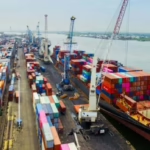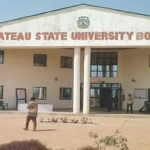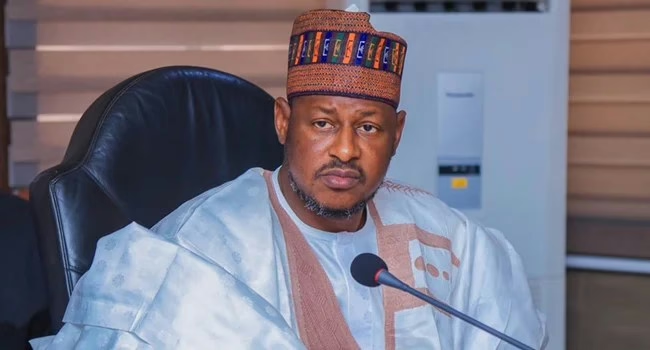Katsina State Governor Dikko Radda has shed light on the profound consequences of insecurity affecting eight local government areas identified as high-risk zones within the state.
The affected LGAs include Jibia, Batsari, Danmusa, Kankara, Safana, Sabuwa, Faskari, and Dandume, according to the governor.
Governor Radda made these remarks on Monday in Katsina during the inauguration of an 18-month initiative funded by the European Union, titled Conflict Prevention, Crisis Response and Resilience. This program aims to foster peace and enhance socio-economic stability in both Katsina and Zamfara states.
The initiative is being executed by the International Organisation for Migration (IOM) in partnership with the Centre for Democracy and Development (CDD) and Mercy Corps.
He emphasized that the surge in banditry and communal violence has led to the closure of schools and markets, displacement of thousands of residents, and abandonment of agricultural lands.
“In these affected communities, children have been deprived of education, families mourn the loss of their loved ones, and elders have been forced to leave their ancestral homes. These represent unprecedented security and humanitarian crises,” Governor Radda stated.
Additionally, he pointed out that the security challenges are exacerbated by environmental issues such as prolonged drought, advancing desertification, diminishing farmland, and outdated agricultural practices, all of which intensify conflicts over resources.
He also noted that economic downturn and escalating youth unemployment contribute significantly to the ongoing insecurity.
“These challenges are deeply interconnected and cannot be addressed in isolation. They require comprehensive, integrated, and community-centered approaches,” the governor asserted.
Governor Radda revealed that his administration is prioritizing dialogue and negotiation as key tools to tackle insecurity in the troubled LGAs, with peace accords already achieved in some of the most affected councils.
Community-driven peace talks have produced encouraging outcomes in Jibia, Batsari, Danmusa, and Kurfi, while negotiations continue in Kankara and Safana, with optimism for similar resolutions.
“This initiative is not imposed from above; it is rooted in local ownership, led by the communities themselves, and respects cultural sensitivities. From the beginning, we have ensured that the voices of women, youth, and persons with disabilities are integral to the planning and execution process. To date, conflicts in half of the targeted LGAs have been resolved, with ongoing discussions in others,” Governor Radda explained.



















